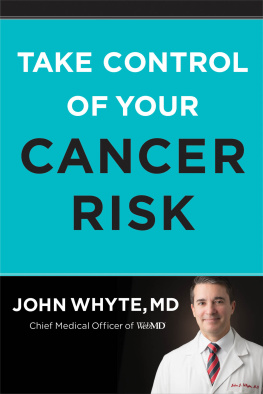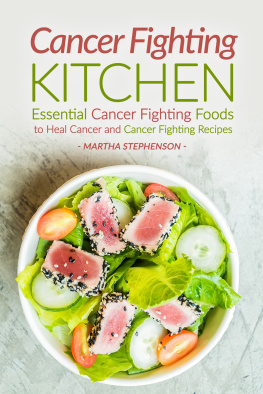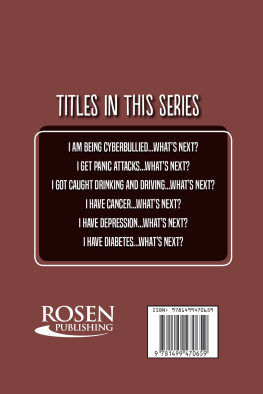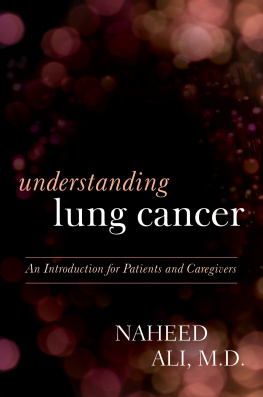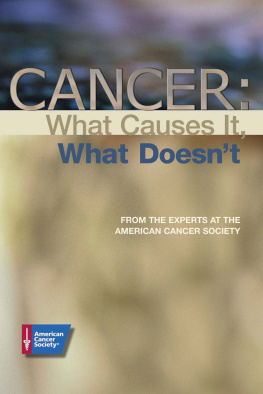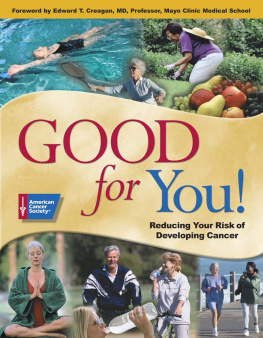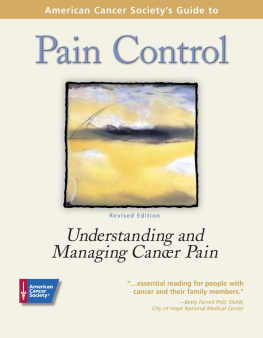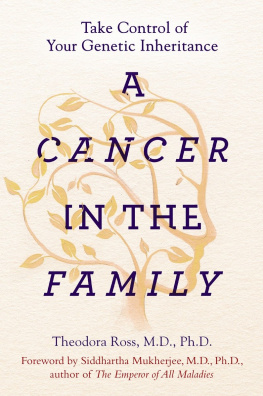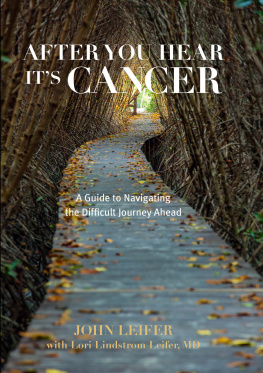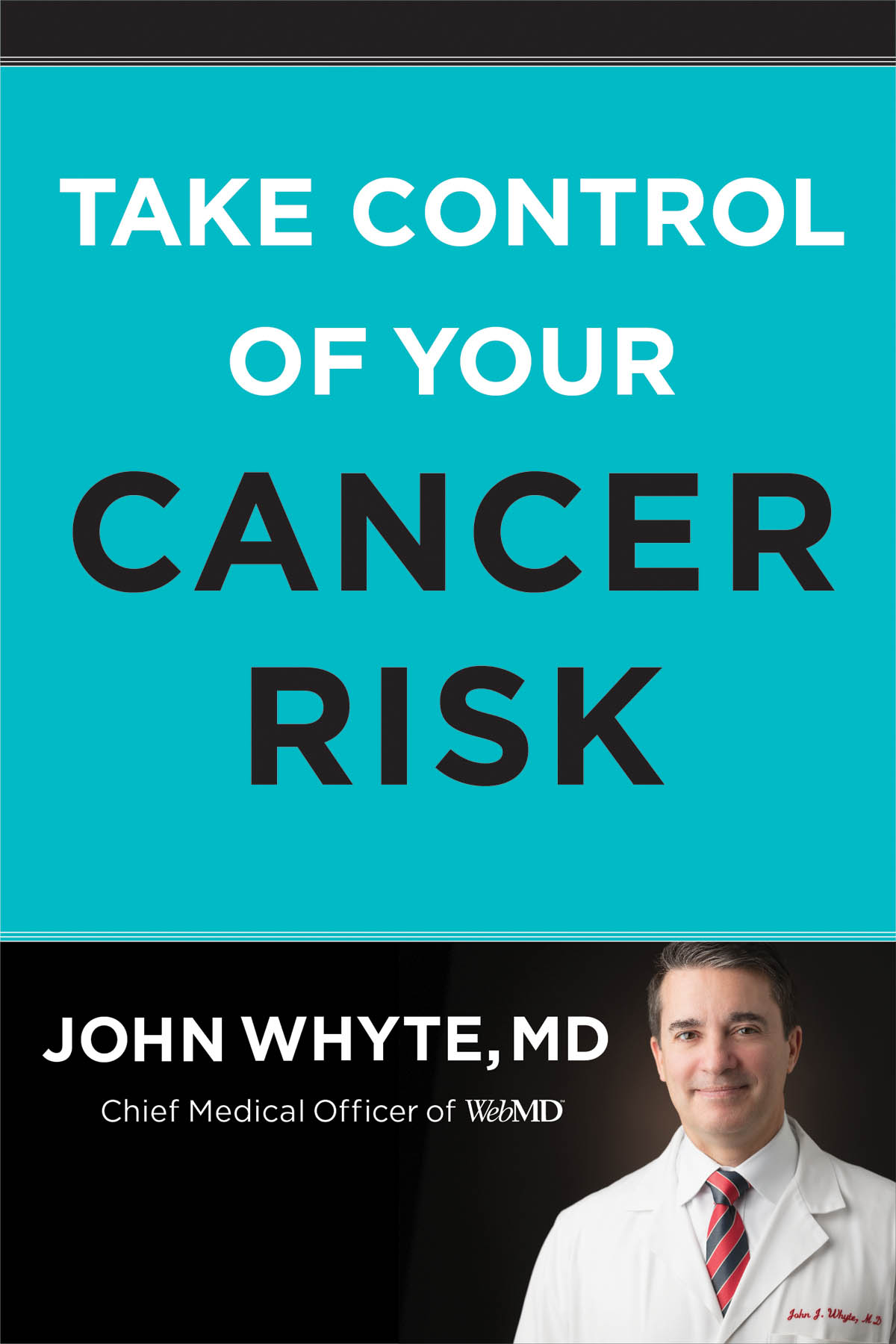Take Control of Your Cancer Risk
Copyright 2021 by John Whyte, MD, MPH
All rights reserved. No portion of this book may be reproduced, stored in a retrieval system, or transmitted in any form or by any meanselectronic, mechanical, photocopy, recording, scanning, or otherexcept for brief quotations in critical reviews or articles, without the prior written permission of the publisher.
Published by Harper Horizon, an imprint of HarperCollins Focus LLC.
Any internet addresses, phone numbers, or company or product information printed in this book are offered as a resource and are not intended in any way to be or to imply an endorsement by Harper Horizon, nor does Harper Horizon vouch for the existence, content, or services of these sites, phone numbers, companies, or products beyond the life of this book.
This book contains advice and information relating to health care. It should be used to supplement rather than replace the advice of your doctor or another trained health professional. If you know or suspect that you or your child has a health problem, it is recommended that you seek your physicians advice before embarking on any medical program or treatment. All efforts have been made to assure the accuracy of the information contained in this book as of the date of publication. The publisher and the author disclaim liability for any medical outcomes that may occur as a result of applying the methods suggested in this book. The author has changed names and identifying details to preserve the privacy of patients and other individuals.
ISBN 978-0-7852-4041-9 (eBook)
ISBN 978-0-7852-4040-2 (HC)
Epub Edition July 2021 9780785240419
Library of Congress Control Number: 2021931680
Printed in the United States of America
21 22 23 24 25 LSC 10 9 8 7 6 5 4 3 2 1
Information about External Hyperlinks in this ebook
Please note that the endnotes in this ebook may contain hyperlinks to external websites as part of bibliographic citations. These hyperlinks have not been activated by the publisher, who cannot verify the accuracy of these links beyond the date of publication
TO ALISA
May everyone be as fortunate as we have been to find a life partner.
TO LUKE AND JACK
You give me purpose in life.
An ounce of PREVENTION is worth a pound of CURE.
BENJAMIN FRANKLIN
CONTENTS
Guide
YOU HAVE CANCER. The three scariest words to hear.
If you or a loved one has been diagnosed with a condition such as heart disease or diabetes, you might have thought, Well, at least its not cancer. We still dread a cancer diagnosis. Thats justified because, despite a war on cancer launched nearly fifty years ago, cancer remains a leading cause of death. While its true that we have witnessed a tremendous explosion of new drugs and treatments that target specific cancer cells, treatment is no walk in the park. It may cure you, but it may also decrease your quality of life and shorten it.
The biggest myth I hear regarding cancer is that its mostly caused by genetics. That is so wrong! Although genetics plays a role in whether youll develop cancer, most experts agree it accounts for less than 20 percent of cancer. The little-known truth is that lifestyle and the environment play the major roles. Let me phrase that another way: what you eat, how you exercise, how much you sleep, your outlook on life, where you live, and how you live mostly determines whether you get cancer.
We need a mindset change from I hope I dont get cancer to How I can prevent cancer?
Believe it not, you have the power to reduce your risk of many cancers. We have more data now than ever before showing what you can dowhat you need to doto prevent a cancer diagnosis.
I want you to think about cancer in the same way you do heart disease or stroke. Even if your parents had a heart attack, you dont think youre automatically destined to the same fate. Rather, I bet you try to keep your weight under control, watch your blood pressure and cholesterol level, and might even try to increase your physical activity. Youre playing a proactive role in whether youll have a heart attack or become debilitated from a stroke. The approach to cancer should be the same because your decisions play a major role in your risk of being diagnosed with cancer. Of course, nothing is 100 percent effective, but science can now show you how to reduce your personal risk.
Also, I want to highlight at least one important difference with cancer. Unlike with heart attacks or stroke, with cancer, you dont often get a second chance to make those lifestyle changes. Thats why it is so important for you to understand the power you have in creating your personal cancer prevention program.
Today, medical professionals recognize cancer as not one disease but more a collection of different diseases. And we know with good certainty what strategies can help decrease the risk for different types of cancer. Its not the same exact recommendations for breast cancer as for colon cancer or even for ovarian cancer or prostate cancer. There are similarities, but its not a one-size-fits-all approach.
Even when you practice prevention, you still need to know how to recognize cancer signs and symptoms. Just because you dont smoke doesnt mean you wont get lung cancer. How do you know when a chronic cough is a lingering viral illness versus something more serious? When should you be concerned about unintentional weight loss in yourself or a loved one? Ill give you answers to these questions, and much more.
One important proactive strategy for cancer prevention is screenings. However, the screening process can be confusing. When should you get screened, and for what cancers? Which test is best? Too many patients have told me they dont need to get mammography or colonoscopy because it doesnt run in their family or Im fine. I dont have any symptoms. That should never be your reasoning. To help prevent cancer, its critical to be screened for the different types. And currently, it seems that we need to be screening for some cancers much earlier than we previously thought.
Youre also likely aware of other factors that contribute to minimizing risk for different cancer types, including but not limited to diet, exercise, sleep, and attitude. For instance, you may know that its good to eat a healthy diet, but what does that really mean? With exercise, does it matter what type you do, or is any increase in movement sufficient? How do you know if youre getting too much or too little sleep? Can a positive attitude reduce your cancer risk?
So, what exactly do you do? How do you empower yourself to make the right decisions? It can be hard to know where to begin, and the cacophony of different experts espousing often conflicting advice can be confusing. Some of it is hype; some of it is shameless marketing; and some of it is excellent information based on the latest science. Thats why its important to rely on credible, trustworthy sources. It is your body and your lifeand you deserve the best information, which will lead to better health.
Thats where this book comes into play. Take Control of Your Cancer Risk is your essential guide to the most up-to-date information, backed by science. It distills the data and information to the most relevant, salient points, so you can understand and implement.
Lets get started.
TRUE OR FALSE?
- Cancer rates have been decreasing in the last five years.
- Women are more likely to die from cancer than men.

